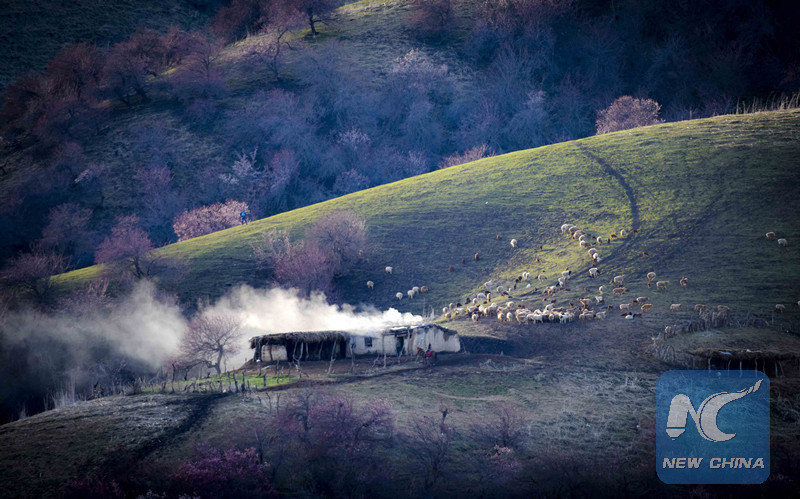
Herdsman Turdin has paid close attention to weather recently. He is not worried if the rainfall would affect grazing his flock. Instead, he worries about the apricots on his doorstep: If it rains, will the blossom be postponed?
Turdin's home is in the middle of the biggest wild apricot forest in Central Asia. The 2,000 hectares of primitive forest dates back to more than 1,000 years ago and has brought local herdsmen pots of gold in recent years, as in spring tourists flood into the valley in Turgen Town, northwest China's Xinjiang Uygur Autonomous Region, to enjoy the vast blossom.
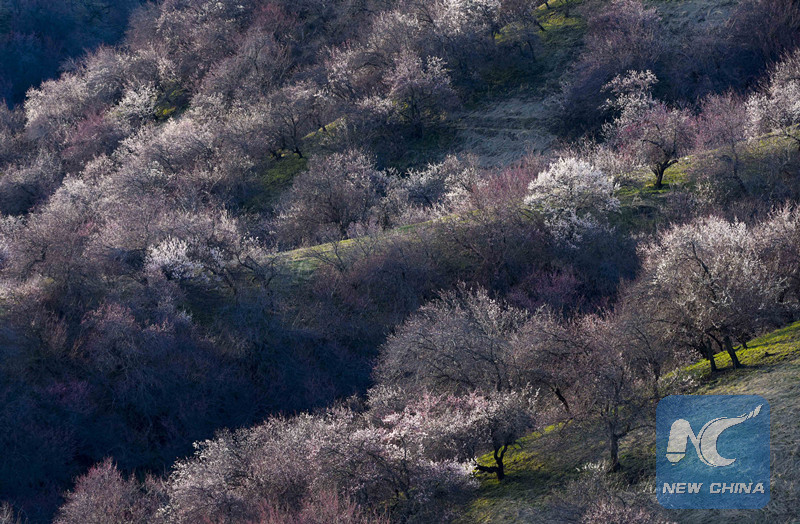
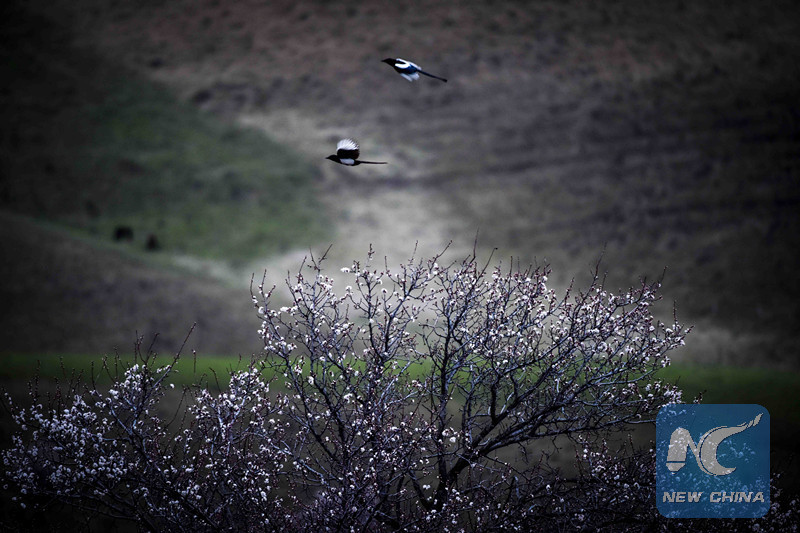

To boost tourism, Turdin established a cooperative with some herdsmen three years ago, offering travelers room and board. As more and more flower lovers come, the cooperative's income increases, says Turdin.
"When spring arrives, we will become very busy," he says, expecting sunny days in spring.
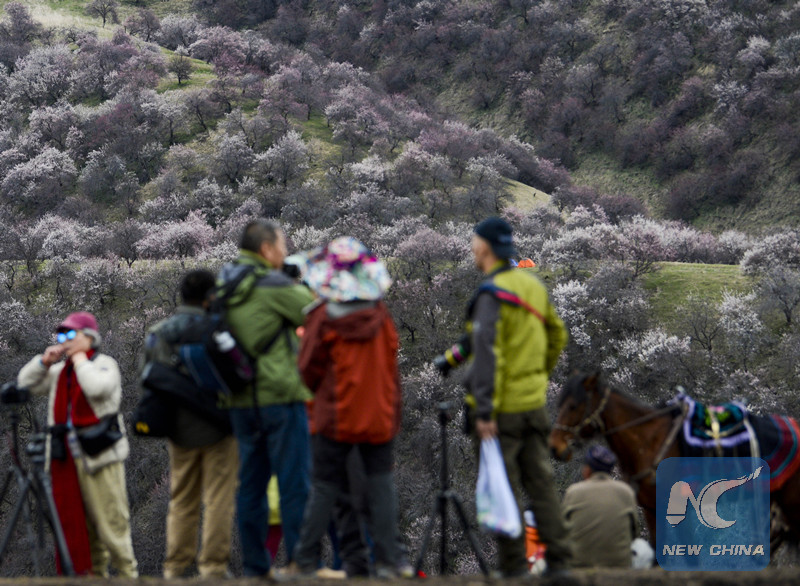
It's late April. As the snow melts, vast shades of apricot blossom changes the palette of the valley into a fresh light pink. More than 100,000 tourists have been attracted here. Every morning, the parking lot outside the valley are filled up with tour coaches and cars.
"To protect the wild apricot forest, vehicles are restricted in the valley. Tourists must park their cars in the parking lot outside the valley and enter the valley on foot or on horseback," says Wu Xiqiang, an official of the town.
That's how young herdsman Saishan Ali and his fellows find their new job: They send the tourists into the valley on horseback. Each horse owner earns 200 to 300 yuan (about 29 to 43 U.S. dollars) per day.
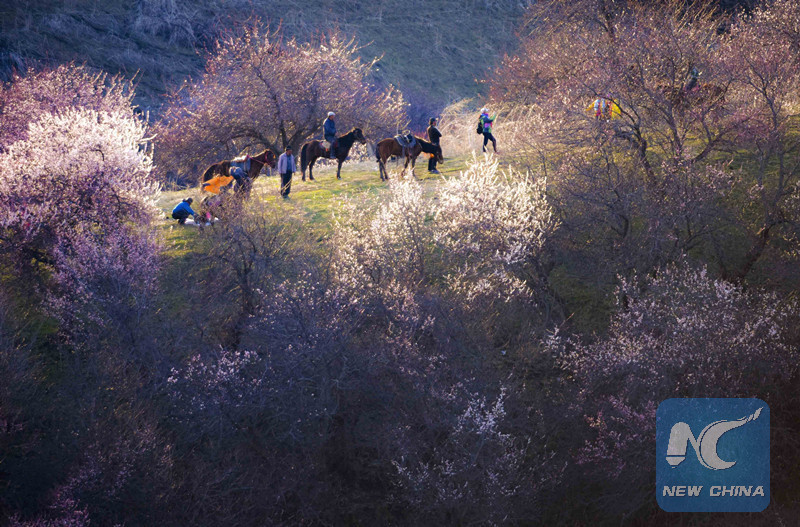
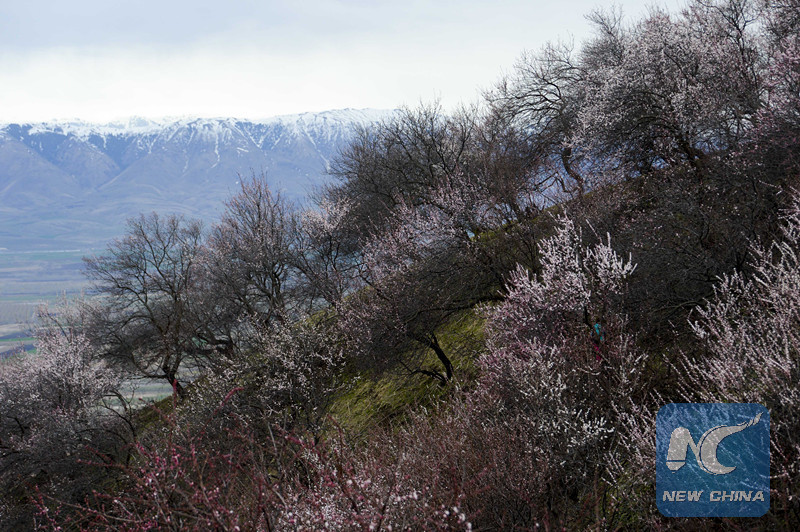
In Turdin's village, herdsmen set up yurts to offer accommodation in mid March, when the apricot trees were still budding. Tourists have also begun to reserve rooms on telephone since the end of March. A herdsman who can accommodate 40 tourists at most with his yurts can earn 10,000 yuan in the blooming month.

Under the blooming trees, a herdsman, dressed in traditional Kazakh costume and holding a golden eagle on his arm, shouts "Pajiao, Pajiao," an accented pronunciation of the mandarin word "Paizhao" meaning "take a photo", to tourists to get paid for taking photos with him.
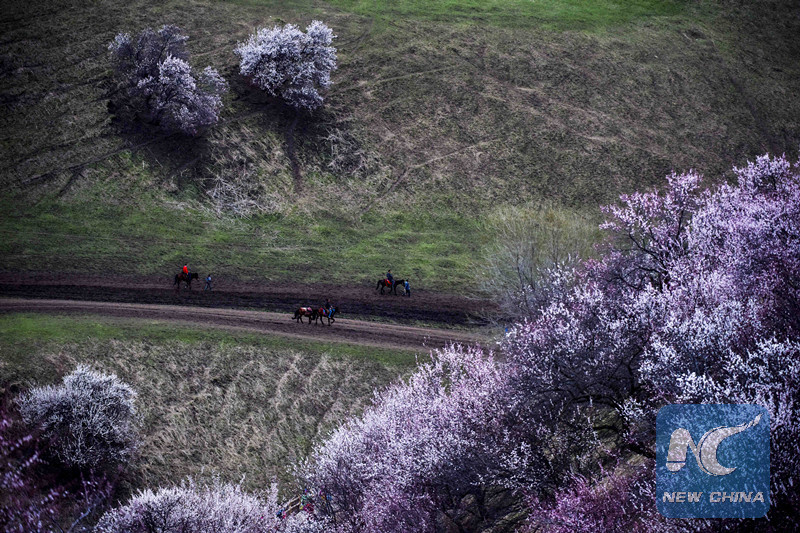
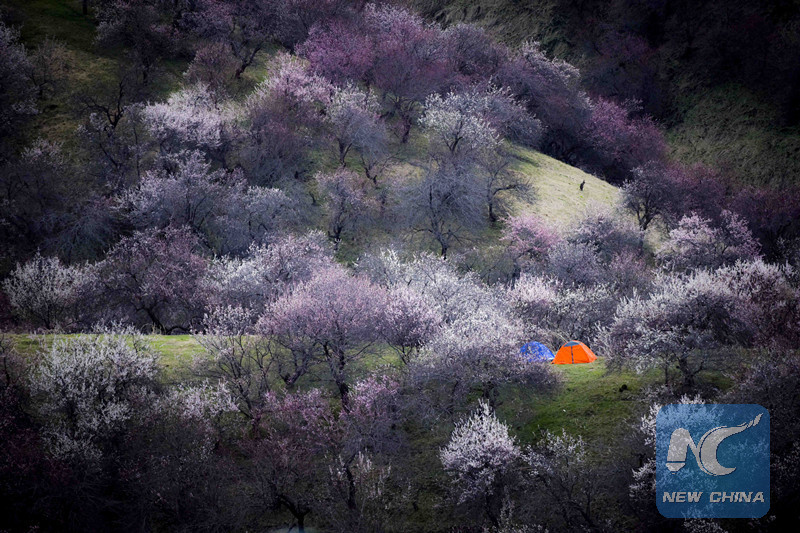
Things are changing here. As the purses get fatter, horizon of the herdsmen in the remote town are broadened, thanks to more exchanges with tourists from across the country. They also speak more and more fluent putonghua, or mandarin.
"Making money is just a part of the picture," says Turdin, "Broadening our horizon is the most important."

(All photos by Zhao Ge)

